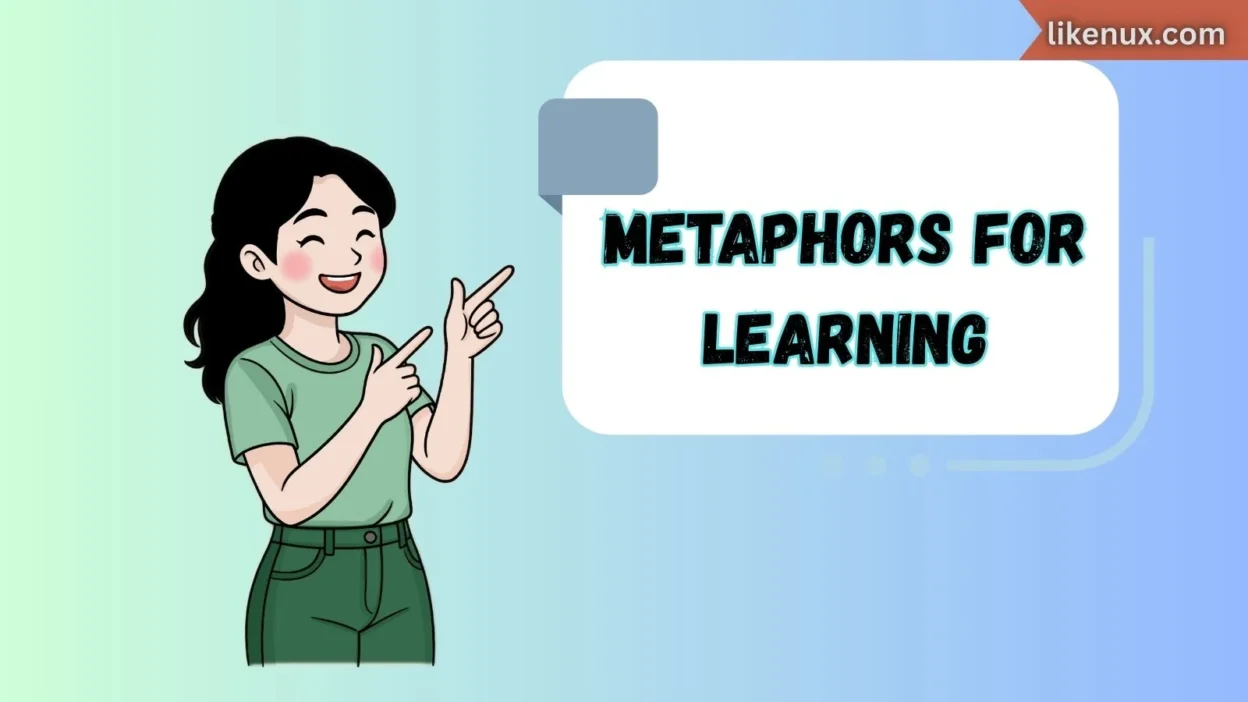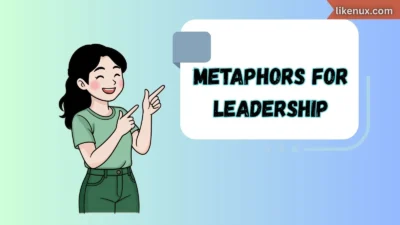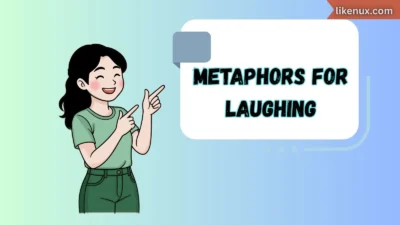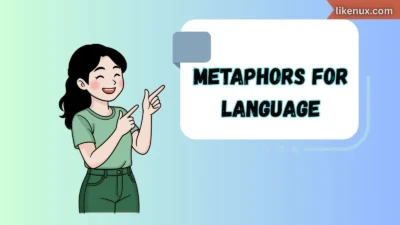Learning is one of the most beautiful journeys in life. It doesn’t matter if you’re in a classroom, reading a book, or simply experiencing life — every moment teaches us something. Using metaphors for learning can help us describe this journey in a more meaningful, creative, and heartfelt way. They allow us to connect knowledge with emotions, making it easier to explain how learning feels and why it matters.
In this article, I’ll share 25 metaphors for learning with their meanings, examples in sentences, best uses, and alternative phrases. Many of these I’ve personally used in teaching, writing, and conversations — and I’ve seen how much more engaging communication becomes when we use metaphors thoughtfully.
1. Learning is a Journey
Meaning: A process of moving forward step by step.
Sentence: Learning is a journey that never really ends.
Best Use: Perfect for inspiring students or motivating personal growth.
Other Ways to Say: Path, adventure, expedition.
2. Learning is a Key
Meaning: Something that unlocks new opportunities.
Sentence: Education is the key that opens doors to success.
Best Use: Encouraging the value of knowledge.
Other Ways to Say: Gateway, passcode, opener.
3. Learning is Planting Seeds
Meaning: Knowledge grows slowly over time.
Sentence: Teachers plant seeds of curiosity in their students.
Best Use: Talking about early education or long-term growth.
Other Ways to Say: Cultivation, sowing, nurturing.
4. Learning is Building a House
Meaning: Constructing knowledge brick by brick.
Sentence: Each subject is a brick in the house of wisdom.
Best Use: Explaining foundations and advanced skills.
Other Ways to Say: Structure, foundation, framework.
5. Learning is Climbing a Mountain
Meaning: Challenging but rewarding progress.
Sentence: Mastering a new skill felt like climbing a mountain.
Best Use: Describing persistence and achievement.
Other Ways to Say: Scaling, ascending, conquering heights.
6. Learning is Lighting a Fire
Meaning: Igniting passion for knowledge.
Sentence: A great teacher lights a fire in the heart of a learner.
Best Use: Motivating students to find excitement in study.
Other Ways to Say: Spark, ignite, fuel.
7. Learning is a Treasure Hunt
Meaning: Discovering valuable knowledge along the way.
Sentence: Exploring history felt like a treasure hunt full of surprises.
Best Use: Making learning exciting and adventurous.
Other Ways to Say: Quest, exploration, scavenger hunt.
8. Learning is a Puzzle
Meaning: Piecing together information to see the whole picture.
Sentence: Learning math is like solving a giant puzzle.
Best Use: Explaining problem-solving.
Other Ways to Say: Riddle, enigma, challenge.
9. Learning is a Map
Meaning: Guidance to explore the unknown.
Sentence: Books are maps that guide us through new worlds.
Best Use: Encouraging exploration of different subjects.
Other Ways to Say: Compass, guide, blueprint.
10. Learning is a Mirror
Meaning: It reflects who we are and what we know.
Sentence: What we learn often becomes a mirror of our values.
Best Use: Talking about self-awareness.
Other Ways to Say: Reflection, glass, lens.
11. Learning is a Bridge
Meaning: Connecting old knowledge with new understanding.
Sentence: Learning a new language is a bridge to another culture.
Best Use: Promoting communication and connection.
Other Ways to Say: Link, passage, pathway.
12. Learning is Climbing Stairs
Meaning: Progressing step by step.
Sentence: Every grade in school is like climbing another stair.
Best Use: Explaining levels of education.
Other Ways to Say: Ladder, steps, staircase.
13. Learning is a Garden
Meaning: It needs care, time, and patience to flourish.
Sentence: Her mind is a garden where knowledge blooms.
Best Use: Inspiring patience in learners.
Other Ways to Say: Orchard, field, landscape.
14. Learning is Cooking
Meaning: Mixing different ingredients (ideas) to create something new.
Sentence: Research feels like cooking with endless recipes.
Best Use: Showing creativity in combining knowledge.
Other Ways to Say: Recipe, blend, preparation.
15. Learning is Traveling
Meaning: Exploring new places and cultures through knowledge.
Sentence: Reading a book is like traveling without leaving home.
Best Use: Inspiring curiosity and discovery.
Other Ways to Say: Journey, voyage, expedition.
16. Learning is Climbing a Tree
Meaning: Gaining higher perspectives as you grow.
Sentence: Every subject studied is like climbing another branch.
Best Use: Visualizing progress and perspective.
Other Ways to Say: Growing upward, scaling, branching out.
17. Learning is Painting a Picture
Meaning: Filling life with color through knowledge.
Sentence: Education paints our future in bright colors.
Best Use: Talking about creativity and vision.
Other Ways to Say: Sketching, drawing, illustrating.
18. Learning is Collecting Tools
Meaning: Skills and knowledge are tools for life.
Sentence: Every lesson adds another tool to your toolbox.
Best Use: Motivating practical application of knowledge.
Other Ways to Say: Resources, instruments, equipment.
19. Learning is Sailing a Ship
Meaning: Navigating through challenges and discoveries.
Sentence: Learning felt like sailing into uncharted waters.
Best Use: Describing exploration and courage.
Other Ways to Say: Voyage, navigation, adventure.
20. Learning is Planting Roots
Meaning: Strong knowledge creates stability.
Sentence: Foundational education plants roots for lifelong growth.
Best Use: Talking about early education or values.
Other Ways to Say: Anchoring, grounding, foundation.
21. Learning is Climbing a Ladder
Meaning: Progressing upward in life and career.
Sentence: Each degree is a rung on the ladder of success.
Best Use: Career development, self-improvement.
Other Ways to Say: Steps, progression, elevation.
22. Learning is Tasting New Flavors
Meaning: Each lesson offers a new experience.
Sentence: Exploring literature was like tasting flavors of human emotion.
Best Use: Encouraging curiosity and variety.
Other Ways to Say: Sampling, savoring, trying.
23. Learning is Shaping Clay
Meaning: Knowledge shapes who we become.
Sentence: Every book shapes the clay of our character.
Best Use: Talking about self-growth.
Other Ways to Say: Molding, sculpting, crafting.
24. Learning is Opening a Window
Meaning: Knowledge offers a new view of the world.
Sentence: Studying science was like opening a window to the universe.
Best Use: Inspiring fresh perspectives.
Other Ways to Say: Doorway, gateway, new horizon.
25. Learning is a Candle
Meaning: It lights up the darkness of ignorance.
Sentence: A single lesson can be a candle in someone’s darkness.
Best Use: Talking about hope, enlightenment, and guidance.
Other Ways to Say: Light, torch, lamp.
FAQs about Learning Metaphors
1. Why use metaphors for learning?
Metaphors make abstract ideas easier to understand and create emotional connections.
2. Can metaphors help in teaching?
Yes, teachers often use metaphors to make complex concepts relatable and engaging.
3. Are learning metaphors universal?
Many are, but cultural context can influence which ones feel most natural.
4. How do metaphors inspire students?
They paint vivid pictures that motivate learners to see education as meaningful and exciting.
5. What’s the most powerful metaphor for learning?
That depends on context, but “learning is a journey” resonates with most people worldwide.
Conclusion
Learning is not just about facts and figures — it’s about growth, discovery, and transformation. Using metaphors like “a journey,” “a key,” or “a candle” helps us capture the depth and beauty of this process. Personally, I’ve seen how students respond more warmly when learning is described in these imaginative ways. They feel more connected, more motivated, and more empowered.
So, the next time you talk about learning — whether in a classroom, conversation, or personal reflection — try one of these 25 metaphors for learning. They don’t just explain; they inspire.

Michael is a passionate thinker and visionary creator who turns ideas into action. With focus and integrity, he strives to make every project purposeful and inspiring.



